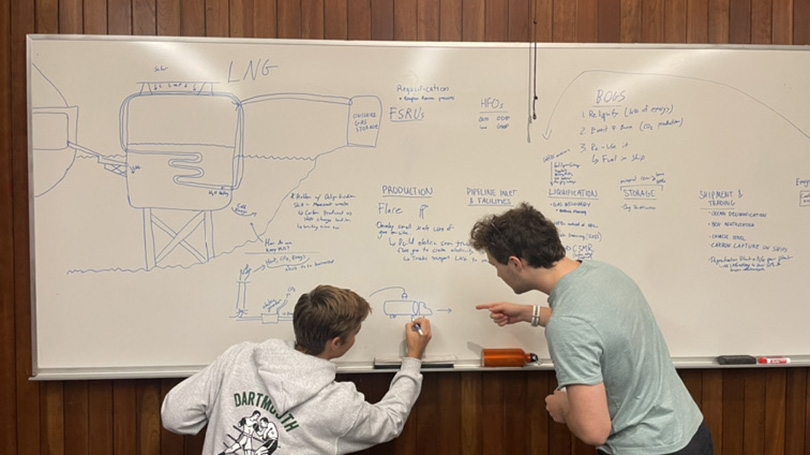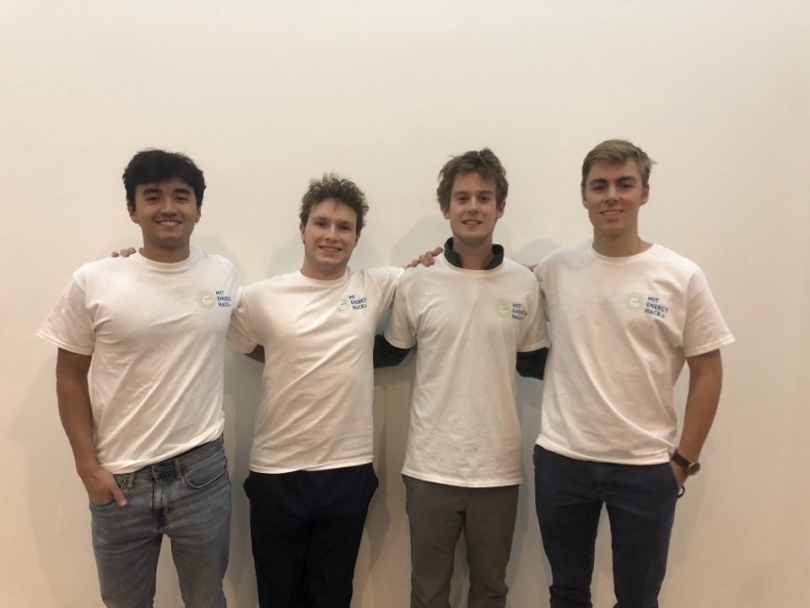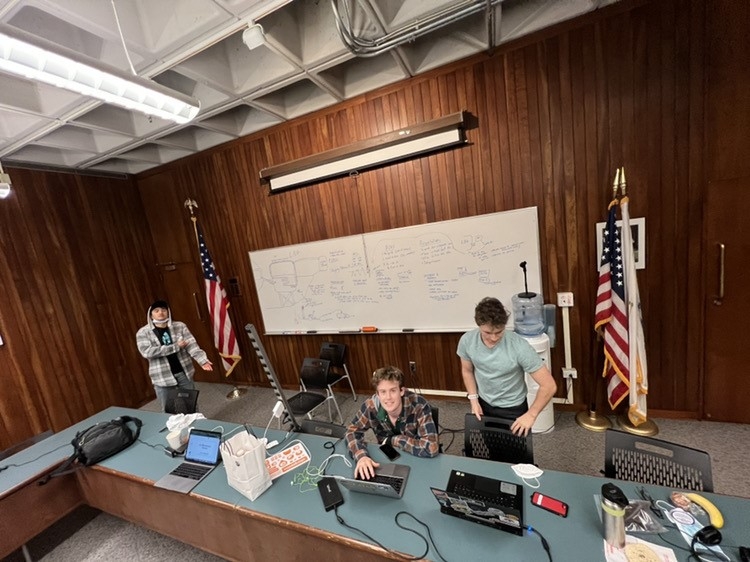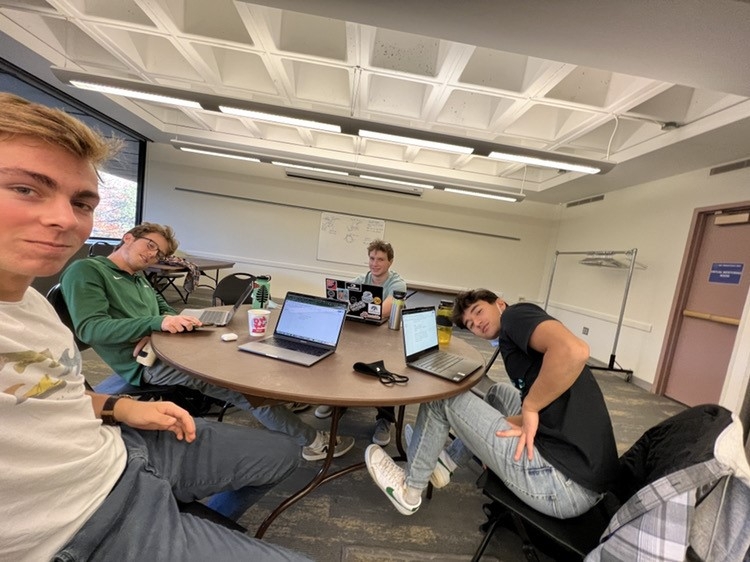


In November 2021, four first-year Dartmouth students participated in Massachusetts Institute of Technology's eighth annual EnergyHack. Hosted by the MIT Energy and Climate Club, the competition challenges college students from across the country to solve challenges facing the energy industry–all in one weekend.
"Ultimately, the goal of the hackathon is to encourage teams to face a problem they might be unfamiliar with and then problem solve. That process involves a lot of learning," Alexander Huang-Menders '25 explained. "Our objective was to work on decarbonizing gas pipelines, from production to use, as well as improving efficiency and safety. By the end of the weekend, my team could tell you, like, everything there was to know about liquefied natural gas."
Alexander was joined by Carson Miller '25, Sam Barton '25, and John DeForest '25 to solve the challenge. Through their relentless, fast-paced research and problem solving, the team familiarized themselves with the realities of the innovative side of the industry.
"It's really interesting to see the progress that is being made. We were reading scientific journals that had come out in early 2021–like very recently–and these new technologies and processes have not been incorporated yet. But you could tell that it was going to be the future," Carson said.

However, the team soon came to realize "one of the big things is the scope of the problems that a lot of [energy] companies are trying to solve," Sam said.
"It felt like it boiled down to economic reasons. It just feels like you're always fighting against the economics of solving climate problems. And you definitely see that close up when you're working on a specific study," Carson said.
After brainstorming how to overcome these challenges, the team was able to reflect on the lessons they learned—about both energy and team work.
"We had a lot of fun. We were able to set aside any ego and just say 'we think this is a cool idea,' 'let's take it this way,' and 'let's build on each other's ideas,'" John said. "It also helped that we didn't really know each other [before the hackathon], so we got to know each other as people in addition to teammates."

The four team members are all members of the Dartmouth Energy Alliance (DEA), which supported the team's trip to MIT. The DEA brings together a diverse, interdisciplinary group of students each week to discuss issues facing the energy sector, work on projects, visit energy-specific destinations, and build a strong student energy network – on campus and beyond.
"What I get the most out of [being in the DEA] is meeting people that are really interested in energy," Carson said. "You can definitely see that there's a lot of people that are really passionate about energy."
But their experiences in DEA were not the only factors that led to their success.
"It was refreshing to see how my own studies can be applied in different ways than the obvious. I drew on all these disciplines," Alexander said. "I think the whole experience was beneficial, just from a pure problem solving standpoint. And I think that's what the hackathon is about: being able to problem solve."
Photos courtesy of John DeForest '25